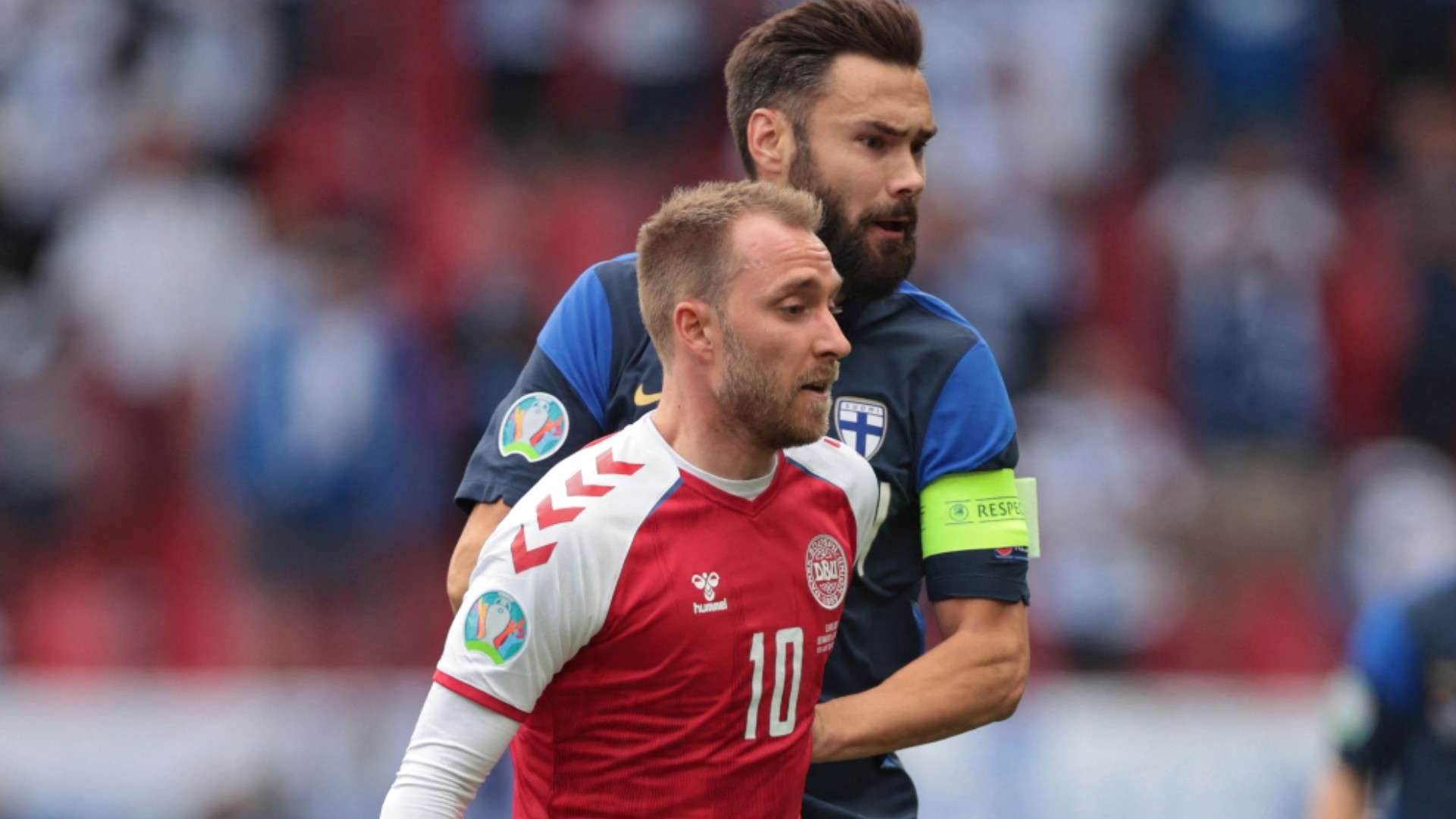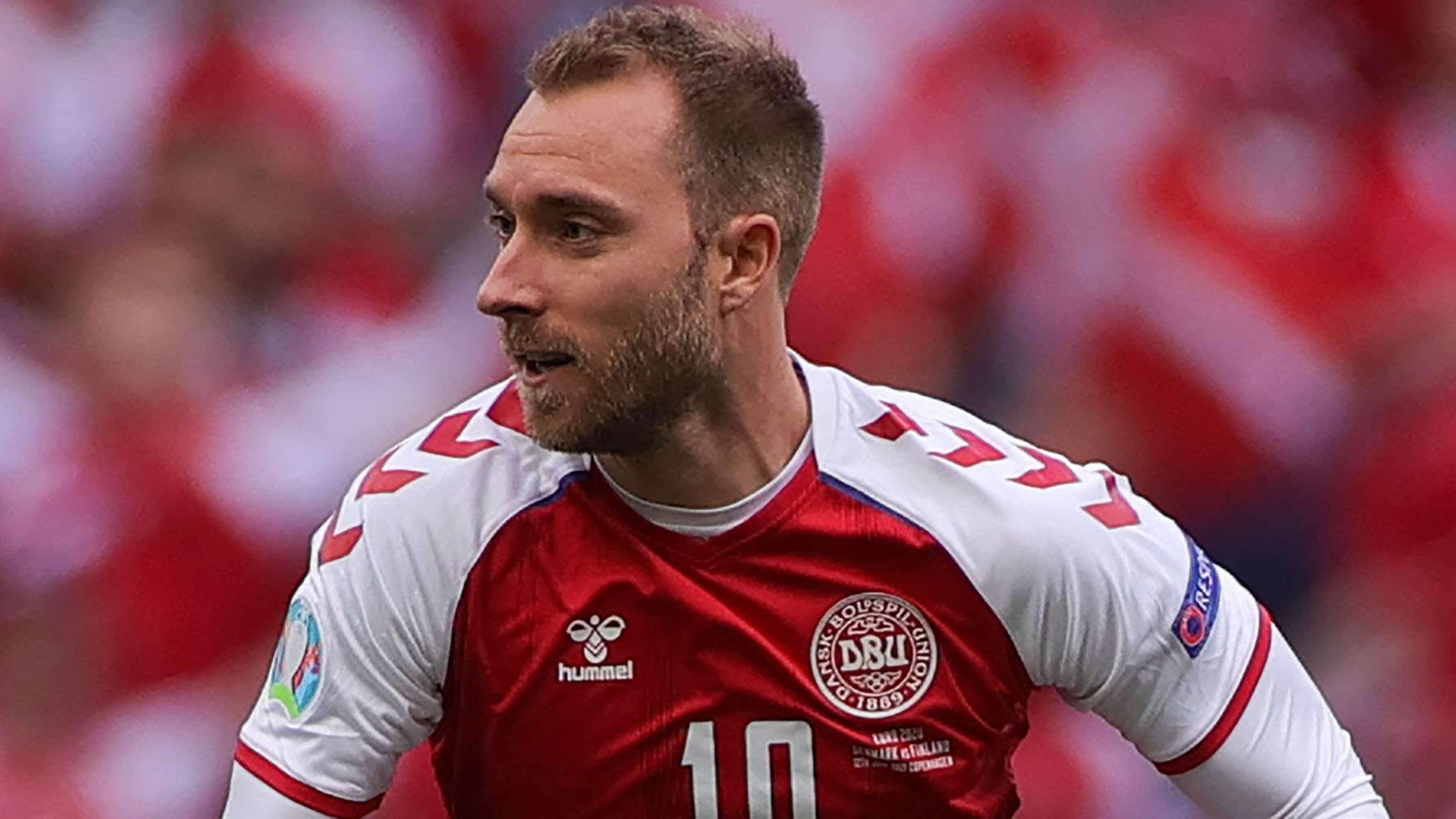Euro 2020 was on its second day when a serious incident occurred involving Denmark player Christian Eriksen.
The midfielder experienced a potentially life-threatening medical emergency on the pitch, prompting an outpouring of concern across the football community and further afield.
Luckily, Eriksen is on the road to recovery and a tragedy was averted, but what happened to Eriksen and how was the situation handled? Goal brings you everything you need to know.
What happened to Christian Eriksen at Euro 2020?
Christian Eriksen collapsed suddenly after suffering cardiac arrest during Denmark's Euro 2020 opener against Finland at Parken Stadium on June 12, 2021.
Denmark team doctor Morten Boesen, who was among a team of medical professionals who tended to Eriksen on the pitch, explained: "It was a cardiac arrest. He was gone and we did cardiac resuscitation.
Next Match
"How close were we to losing him? I don't know. We got him back after one defib [defibrillation]. That's quite fast."
It remains unclear as to why this happened to Eriksen, who had played the entirety of his professional career with minimal injuries, performing at the highest level for Ajax, Tottenham and Inter.
"The examinations that have been done so far look fine," Boesens said in the aftermath. "We don't have an explanation to why it happened."
In the 42nd minute of the game against Finland, with no other players near him, Eriksen stumbled and dropped to the ground, where he lay motionless, prompting immediate concern.
A number of Denmark and Finland players, along with referee Anthony Taylor, noticed the severity of the situation and called for medical assistance.
The Danish players formed a shield around their striken team-mate as doctors carried out CPR and attempted to resuscitate him with a defibrillator.
Approximately an hour after his collapse, it was officially confirmed that Eriksen's condition had been stabilised and he was awake, recovering in hospital.
The game between Denmark and Finland was suspended for approximately 90 minutes and, remarkably, the two teams concluded the encounter, with the Finns emerging with a 1-0 victory.
A number of days after the incident, Eriksen posted a message on his social media channels to give thanks and to reassure those who were worried about him.
"Big thanks for your sweet and amazing greetings and messages from all around the world. It means a lot to me and my family," he wrote.
"I'm fine - under the circumstances. I still have to go through some examinations at the hospital, but I feel okay. Now, I will cheer on the boys on the Denmark team in the next matches. Play for all of Denmark."
 Getty
Getty
What did Simon Kjaer do to help Christian Eriksen?
Denmark captain Simon Kjaer was lauded for his reaction to Eriksen's collapse. Noticing the severity of the situation, he helped to adjust his team-mate's body position in order to avoid further injury.
Then, as the medical professionals and doctors went to work on saving Eriksen's life, he led the other players in forming a shield around the scene, so as to preserve their friend's dignity.
As well as that, Kjaer, along with others such as goalkeeper Kasper Schmeichel, helped to console Eriksen's girlfriend Sabrina Kvist Jensen, who was visibly distraught.
Why was the Denmark vs Finland game not called off?
UEFA indicated that the game between Denmark and Finland went ahead, despite the medical emergency, following the request of players from both teams to do so.
Denmark head coach Kasper Hjulmand explained that the decision to play came after being presented with two options: to finish the game on the day or to do so at noon the following day.
However, former Denmark star Peter Schmeichel, father of Kasper, claimed that his country were given an ultimatum - play the game or accept a 3-0 forfeit.
Pierre-Emile Hojbjerg, who also played in the game, revealed that the Danish players had received psychological support following the traumatic event, which had reduced a number of individuals to tears.
On reflection, Hjulmand suggested that it was "wrong" to go ahead of the match given the deep impact the incident had on the players.
"I think it was the wrong decision to make between the two scenarios," the Denmark boss told a press conference. "It was very tough for the players. They didn't even know if they could probably lose their best friend.
"I have the feeling that we shouldn't have played and wrong that the players had to decide. I'm really proud of the way the world reacted to this incident. It's often about money, but [in the Eriksen emergency] we saw what football is all about - compassion and love."
When Eriksen's condition was stabilised, Kasper Schmeichel later said that "it was damn nice to see him smile and laugh and be himself" but was critical of UEFA.
The goalkeeper told DR: “We were put in a position I don’t think we should have been put in. It probably required that someone above us had said that it was not the time to make a decision and maybe should wait for the next day."
Will Christian Eriksen play football again?
It remains to be seen if Christian Eriksen will play competitive football again after suffering from a cardiac emergency.
On June 17, it was confirmed that he would be fitted with a heart-starting device known as an implantable cardioverter defibrillator (ICD).
A statement from the Danish football association (DBU) said: "After Christian has been through different heart examinations it has been decided that he should have an ICD (heart starter).
"This device is necessary after a cardiac attack due to rhythm disturbances.
"Christian has accepted the solution and the plan has moreover been confirmed by specialists nationally and internationally who all recommend the same treatment."
When Eriksen's on-pitch cardiac arrest occurred, comparisons were immediately drawn to Fabrice Muamba, the former Bolton Wanderers player who retired after enduring a similar issue.
However, there are examples of players playing on for a limited period after suffering heart issues.
Former Stuttgarter Kickers player Daniel Engelbrecht did so, while Netherlands international Daley Blind continued to play after being fitted with an ICD in 2019


